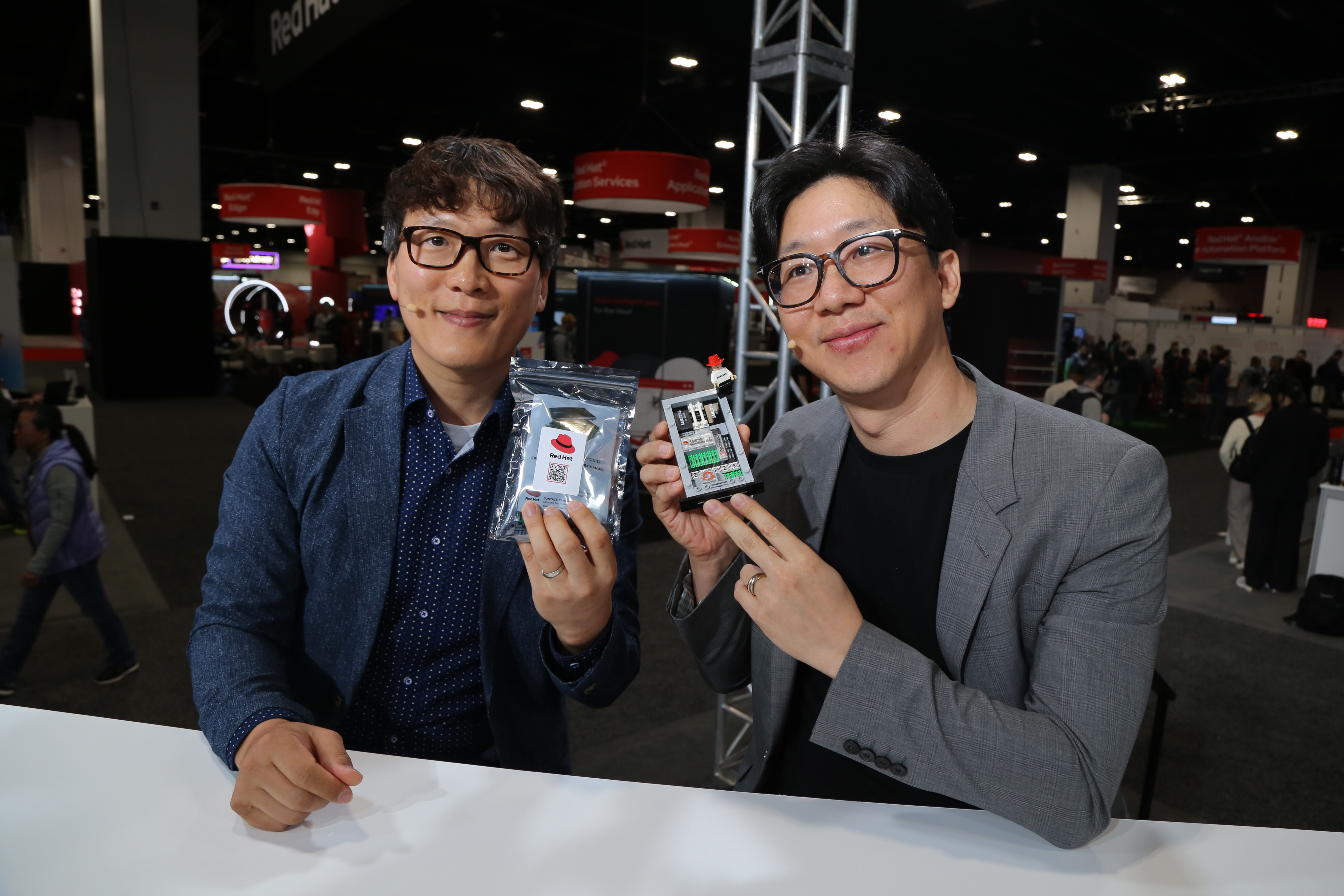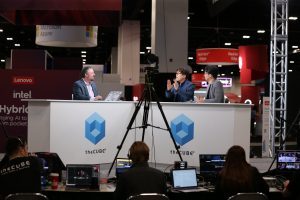 AI
AI
 AI
AI
 AI
AI
With steady advances in technologies such as artificial intelligence, the Internet of Things and quantum computing, the innovation boundaries in memory protocol and computing are continually pushed forward.
Red Hat Inc.’s alliance with Samsung Electronics Co. Ltd exemplifies this progress. By merging expertise in open-source solutions and hardware excellence, the partnership has introduced a groundbreaking paradigm for data-intensive applications, particularly in the realm of AI.
“Samsung is a hardware maker, a special memory maker,” said Michael Kim (pictured, left), senior director of Samsung Memory Research Center and head of the OCP experience center at Samsung Electronics. “We’re a product-based company, but we believe we need to move forward [as a] solutions company. But to make a solution, we need to do a lot of things: applications, network, hardware and software. I found that Red Hat is a really good partner because they own the operating system [and a] very good ecosystem.”
Kim and Taehoon Lee (right), strategic account manager at Red Hat, spoke with theCUBE Research analyst Rob Strechay at Red Hat Summit, during an exclusive broadcast on the CUBE, SiliconANGLE Media’s livestreaming studio. They discussed how both companies aim to optimize memory usage, enhancing performance while lowering the total cost of ownership for hyperscalers. (* Disclosure below.)

Analyzing the Compute Express Link memory protocol with Samsung Electronics’ Michael Kim and Red Hat’s Taehoon Lee.
Partnerships are the de facto blueprint to build and scale comprehensive enterprise solutions expediently. Known for its robust operating system and platform, Red Hat emerged as a natural fit due to its expansive ecosystem.
“The keyword is ‘Share the market share,'” Lee said. “More than 70% of enterprise customers use Red Hat platforms. And globally, everybody uses Samsung memory. So there’s a new memory protocol that will come, [named] CXL. We are collaborating using the market shares to expand our memory market.”
Central to their partnership is the development of Compute Express Link, a groundbreaking memory protocol set to revolutionize the IT landscape. CXL addresses the limitations of traditional memory systems, especially in the face of data-intensive applications such as AI, according to Kim.
“CXL is a new kind of device, a new protocol,” he said. “People are looking for a new technology to cover the old technology or some of the limitations. CXL is one of the new technologies to overcome the problem of the current IT systems, especially memory and some computing processes.”
Here’s the complete video interview, part of SiliconANGLE’s and theCUBE Research’s coverage of Red Hat Summit:
(* Disclosure: TheCUBE is a paid media partner for Red Hat Summit. Neither Red Hat Inc., the sponsor of theCUBE’s event coverage, nor other sponsors have editorial control over content on theCUBE or SiliconANGLE.)
THANK YOU